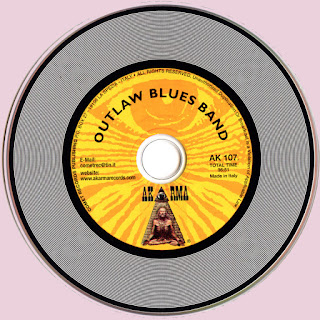In 1971 Gold was one of the hottest bands in San Francisco without an LP. Bill Graham was booking them to open for 10 years After, Big Brother & the Holding Company, Hot Tuna and more. Eventually he called their management into his office and let them know that he needed bands that had an LP out with airplay. In 2002, Gold's Album "Mission Rock" recorded in '71 was released. After 32 years, finally the LP Graham had wanted to hear!
Gold, a real San Francisco band had Mission District origins in 1967. To gain attention, the band often did benefit gigs for good causes, something they learned from watching the career of Country Joe & The Fish. They played twice for prisoners at the San Francisco County Jail, and also at San Quentin State Prison. In 1971 they played at an anti-Vietnam War Moratorium rally at Golden Gate State Park which drew over 150,000, sharing the bill with Big Brother & The Holding Company. Also, in 1970 they played at a notorious Hells Angels party along with Big Brother, Full Tilt Boogie and Janice Joplin. Not only were they receiving good support from Bill Graham, but also received favorable reviews from the San Francisco Chronicle & Examiner.
The only thing holding them back during those days was not having an LP, but they did manage to get some airplay right along with Santana and The Grateful Dead from an audio cassette they had sent in to local FM radio stations.
Country Joe McDonald took a great interest in the Band and worked with them on a number of projects. he even helped them release a 45...the classic "Summertime" b/w "No Parking". The single went pretty much unnoticed, however they did receive some airplay on top 40 stations in California and Utah.
Guitarist Ed Scott founded what was to become Gold in 1967. Known at the time as The Lost Cause, featuring Larry Walton on lead guitar, they went through several names including Golden Gate, and then finally Gold (as in Acapulco Gold). As the years progressed, new members came and went. The band finally broke up in September, 1973 due to frustration over lack of finding a good label and the usual ego tripping issues that cause most bands to fall... For a garage band they actually went very far and played on some big stages with some mighty huge acts...
MyFirst-Band
1. No Parking - 2:35
2. High On Love - 4:03
3. Righteous Road - 2:49
4. Summer Dresses - 2:26
5. Conquistadore - 5:16
6. Heavy - 2:48
7. Elizabeth - 4:33
8. I Saw You - 2:38
9. PSB - 5:47
10.Filet Of Soul - 5:40
Gold
*Ronald Coco -Vocals
*Ed Scott - Guitar
*Joe Bajza - Guitar
*Louis Gorseau - Drums
*Joe Mancada - Bass
*Dennis Cabral - Percussion
*Percy Nicholson - Congas
Free Text





































